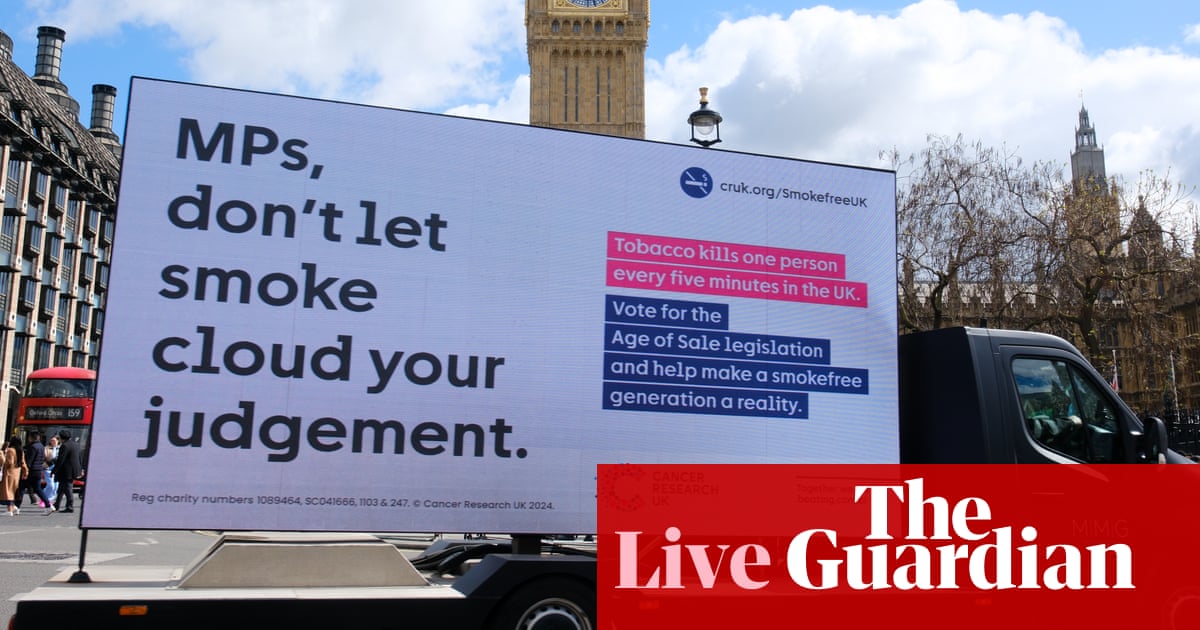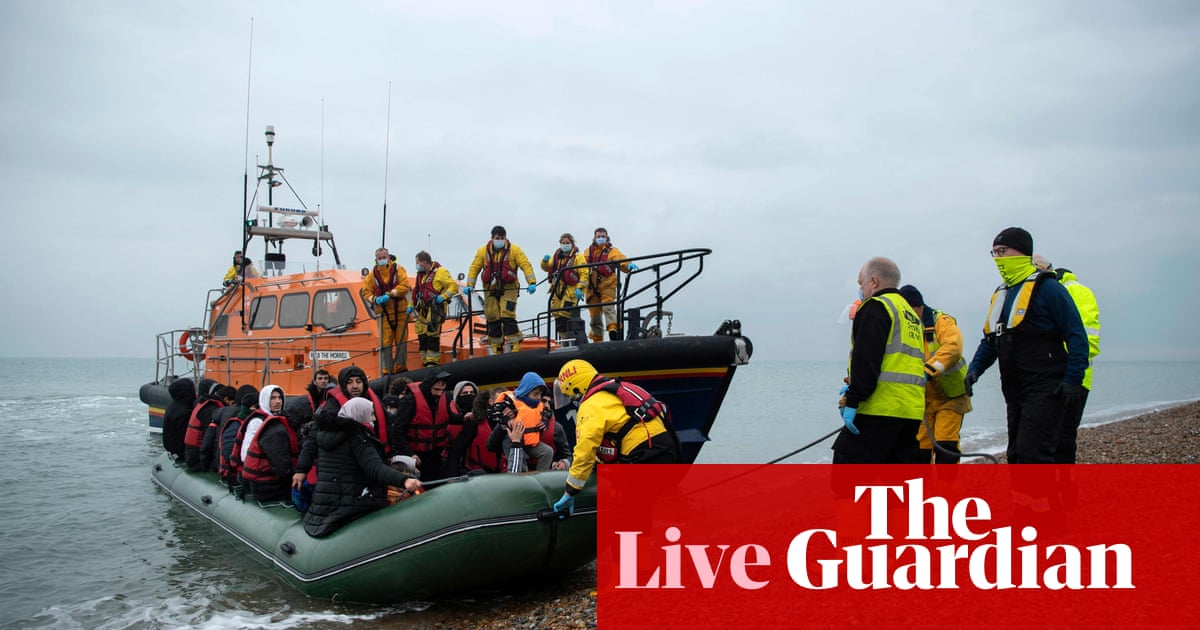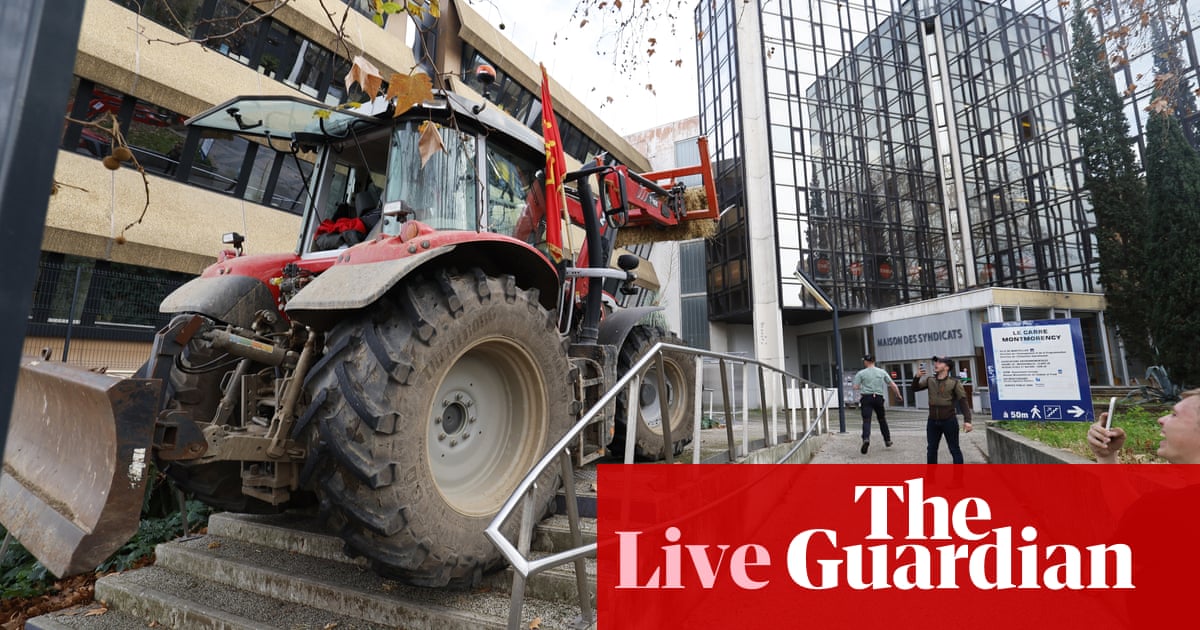
Here’s my colleague Aubrey Allegretti’s full report on the vote.
That’s it from me, Tom Ambrose, and indeed the UK politics blog this evening. Thank you for following along.
You can stick with me by joining me over on the coronavirus blog now if you like, but otherwise have a good evening.
Meanwhile, Labour’s deputy leader, Angela Rayner, has been offering her view on the evening’s events on Twitter.
She says: “Conservative MPs just voted against our motion to ban MPs having second jobs as advisers and consultants.
“Two weeks after voting to protect their mate who was found guilty of corruption, tonight they’ve voted to protect their £1,000 dodgy second jobs.”
We also have a little more information on the Tory MPs who voted against the government to support the Labour motion.
The division list showed four Conservative MPs rebelled to support Labour’s standards motion calling for a ban on “any paid work to provide services as a parliamentary strategist, adviser or consultant”.
They were: Peter Bone (Wellingborough), Philip Hollobone (Kettering), Nigel Mills (Amber Valley), and Dan Poulter (Central Suffolk and North Ipswich).
Labour’s leader Sir Keir Starmer has been speaking to Sky News about this evening’s votes in the House of Commons.
He said:
We put forward a plan of action to clean up politics and strengthen standards in politics. If you can believe it after two weeks of Tory sleaze and corruption the prime minister whipped his MPs against that plan of action and, frankly, he just doesn’t get it.
When asked if we will see reform on MPs’ second jobs or not, he added:
Well, we need to press on with this and one of the thing’s that’s clear is we are not going to back down from these proposals, we are not prepared to have them watered down. But it is unbelievable that after the last two weeks the prime minister has whipped his MPs yet again to vote down a plan of action on standards. That tells you all you need to know on how seriously the prime minister is actually taking this issue.
He also commented on the fact that Boris Johnson timed his own announcement to coincide with the Labour leader’s press conference on standards yesterday:
I obviously need to do more press conferences because if the prime minister cedes ground every time I do one there is grounds for doing more of them.
Government motion passes by 297 votes to 0
The result from that vote on that second motion has just come in and it’s a comfortable victory for the government - because the opposition abstained en masse.
The government’s motion was passed with 297 votes in favour and 0 against.
I will bring you reaction on that as it comes.
Labour motion on MPs" second jobs voted down in the Commons
The result of the vote on MPs’ second jobs has come through and, as expected, Labour’s proposal has been voted down.
There were 231 votes in favour, with 282 votes against, defeating the motion.
The figures suggest a number of Tory abstentions and possibly even a few, such as Nigel Mills, voting against the prime minister.
The Labour motion would have seen the standards committee design rules by the end of January, which would ban MPs from working as political consultants.
The motion would have also ensured MPs would get a vote on bringing in these rules, shortly after the committee published its recommendations.
Up next is the vote on the government’s alternative motion, which is of course expected to pass.
It would still see the committee providing recommendations by the same date - 31 January - but it is less clear what happens next.
We will bring you the result of that vote as it comes, as well as details of how MPs voted in the first vote and reaction from Westminster.
Some interesting news being reported in the past couple of minutes.
Ahead of tonight’s vote, the Conservative MP Nigel Mills has told The Sun’s deputy political editor Kate Ferguson he will vote for the Labour motion tonight.
She tweets that it sounds like he feels he can’t justify to his locals that he voted against it just “because Labour forced the timetable”.
Good evening, I’m Tom Ambrose and will be bringing you the latest from Westminster this evening as Boris Johnson meets with backbench group the 1922 Committee, as well as that key vote in just under an hour.
We start with some news following the end of that meeting, although MPs have reportedly been asked not to speak to journalists on their way out.
The prime minister himself kept things suitably brief when The Guardian’s chief political correspondent, Jessica Elgot, asked if he had got his party back on side. He replied: “Bah.”
Meanwhile, the BBC’s political editor, Laura Kuenssberg, has reported that there has been a mixed reaction to say the least from Johnson’s own backbenchers.
Meanwhile, his speech to the committee has also reportedly been described as “muted”.
Standards committee chair says plan to limit time MPs can spend on 2nd jobs may be unworkable
MPs started debating the Labour motion on tightening the code of conduct for MPs (see 11.58am) at around the same time Boris Johnson started giving evidence to the liaison committee. Here are some of the highlights from the debate so far.
Thangam Debbonaire, the shadow leader of the Commons, said the government amendment was trying to “gut” the Labour motion. (She has a point - see 11.58am.) “It feels to me the government’s actions are too little, too late,” she said.
Jacob Rees-Mogg, the leader of the Commons, said it was valuable for MPs to be allowed second jobs. He said:
The government believes that it is an historic strength of our system that MPs should have a wider focus than the Westminster bubble, that we should maintain connections to the world beyond so that we may draw on the insight and expertise that this experience offers, and that rather than a chamber replete with professional politicians with no previous career or future career other than to remain on the public payroll, we have a parliament that benefits from MPs with a broader range of talents and professional backgrounds.
But he also defended the plan to stop MPs working as political consultants.
I can confirm to the house that we believe this experience and expertise that we accrue as part of our work as MPs should not be for sale. We are elected to parliament on a promise to work for the greater good, not ourselves.
Sir Edward Leigh (Con) says putting a limit on the amount of time MPs can spend on a second job (another government proposal) would give too much power to the parliamentary commissioner for standards. He said:
It should be common sense and it should be left to the judgment of the electorate. If it’s left to the commissioner for standards, however distinguished, that will give that official a degree of power never enjoyed by any official ever before over members of parliament.
Chris Bryant, the Labour chair of the standards committee, also said he was sceptical of the plan to limit the amount of time MPs spend on second jobs. This is a recommendation from the Committee on Standards in Public Life. But Bryant said:
I think it’ll be very, very difficult for the commissioner to start investigating whether an MP was devoting enough of their time to their constituents.
Of course all our constituents want us to throw ourselves heart and soul into our work, and I think we all do - many of us work many, many more hours than a normal working week, 60, 70, 80 hours.
Bryant said he was “very hesitant about going down this route of timesheets”, noting he would urge his committee to “think very carefully about this”.
That is all from me for today.
My colleague Tom Ambrose is taking over now.
Torsten Bell, chief executive of the Resolution Foundation, a thinktank focusing on poverty and inequality, says the government has today published new details of how its cap on the amount people have to pay for adult social care will work under the new system it is introducing. He says the small print shows it will be less generous than it would have been if the cap had operated in line with the original Dilnot proposals. Bell explains it in a Twitter thread starting here.
And here is one of his conclusions.
UK minister admits big fall in returns of boat arrivals since Brexit
The number of people who have been sent back to Europe after travelling to the UK across the Channel in small boats has plummeted since Brexit, Tom Pursglove, the immigration minister, has admitted to MPs. My colleague Rajeev Syal has the story here.
Johnson admits defending Owen Paterson was ‘total mistake’
Here is my colleague Peter Walker’s story on Boris Johnson at the liaison committee saying it was “a total mistake” to try to defend Owen Paterson from punishment.
Although the government has said it cannot find a minute of the call between Owen Paterson and Lord Bethell, the then health minister, about a Randox Covid contract, Randox itself has offered to help. Randox issued this statement
Randox will be pleased to co-operate fully in laying before the house all the material required.
Public disclosure will demonstrate the efficiency and value for money provided by Randox through contacts awarded in full compliance with government regulations at a time of national crisis.
Contrary to much of what has been written and broadcast, lobbying played no role in the awarding of these contracts.
The company has 40 years’ experience in testing and diagnostics. It is proud of its performance and delivery under the contracts awarded to it on merit by the Government. They resulted in the delivery of more than 21m Covid tests, 15m of them to the national testing programme from the start of the emergency in the spring of 2020.
Q: Will you back an amendment that I and other committee chairs are putting to the health bill saying independent estimates of the number of healthcare staff needed in future should be produced?
Johnson says he is interested in that, but the government already has its own targets for recruiting staff.
And that’s it. The hearing is over.
Johnson says it is "worth considering" whether UK could pay £400m debt to Iran in cash
Jeremy Hunt (Con), chair of the home affairs committee, goes next.
Q: Can you confirm that the decision to repay the £400m debt to Iran, cited as a key factor in Nazanin Zaghari-Ratcfliffe, is entirely up to the UK?
Johnson says Hunt knows about this from his time as foreign secretary.
He says this is very complicated. In an ideal world the UK would just repay it. But it is more complicated than that.
Q: If we cannot pay the money through banks, because of international sanctions, why can’t we do what President Obama did, and just fly the money over in cash?
Johnson says that is certainly “worth considering”.
(It sounds as if he is saying this more as a formality than because he is genuinely tempted by the idea.)
But he says there are complexities involved. He says there are other cases involving dual nationals to consider.
He says it is terrible to witness this. He would like to be able to say Nazanin will be home by Christmas, but he can’t promise that.
Q: Previously you said you would be responsible for empty shelves. Do you still stand by that?
Yes, says Johnson. He says he meant he would be responsible for addressing the problem. It has been caused by the shortage of HGV drivers, which is a global problem.
Q: Has Brexit made it worse?
Johnson says it is a pan-European problem. He says the job needs to be made more attractive.
Angus Brendan MacNeil (SNP), chair of the international trade committee, says Brexit will mean a 4% hit to productivity. What will we get out of it.
Johnson says the trade deals will benefit the UK.
Q: Shouldn’t you stop sending Tory donors to the Lords?
Johnson says, unless you have public funding of parties, you need to continue with a system where public-spirited people give donations to parties.
Ellwood is having a go at Johnson now over cuts in military hardware procurement.
Johnson says it is “now or never” for the UK land forces.
The old days when they had to prepare for large tank battles in Europe are over.
He says it is important now to focus on matter such as cyberwarfare. That is where we need to be. We can’t go back to the 1940s.
Q: Do you agree with David Attenborough that climate change is the biggest security threat the planet has faced?
Johnson says he has given a speech saying much the same.
Johnson says it would be "tragic, tragic mistake" for Russia to invade Ukraine
Q: Is there more we should to do protect Poland and Ukraine from Russia?
Johnson says the two cases are different. Poland has a security guarantee from Nato; Ukraine doesn’t. But it is important that all sides understand the cost of a miscalculation on the border.
It would be “a tragic, tragic mistake” for the Kremlin to think anything could be gained by military adventurism, he says.
Ellwood says Russia will only understand that if the UK is explicit now.












